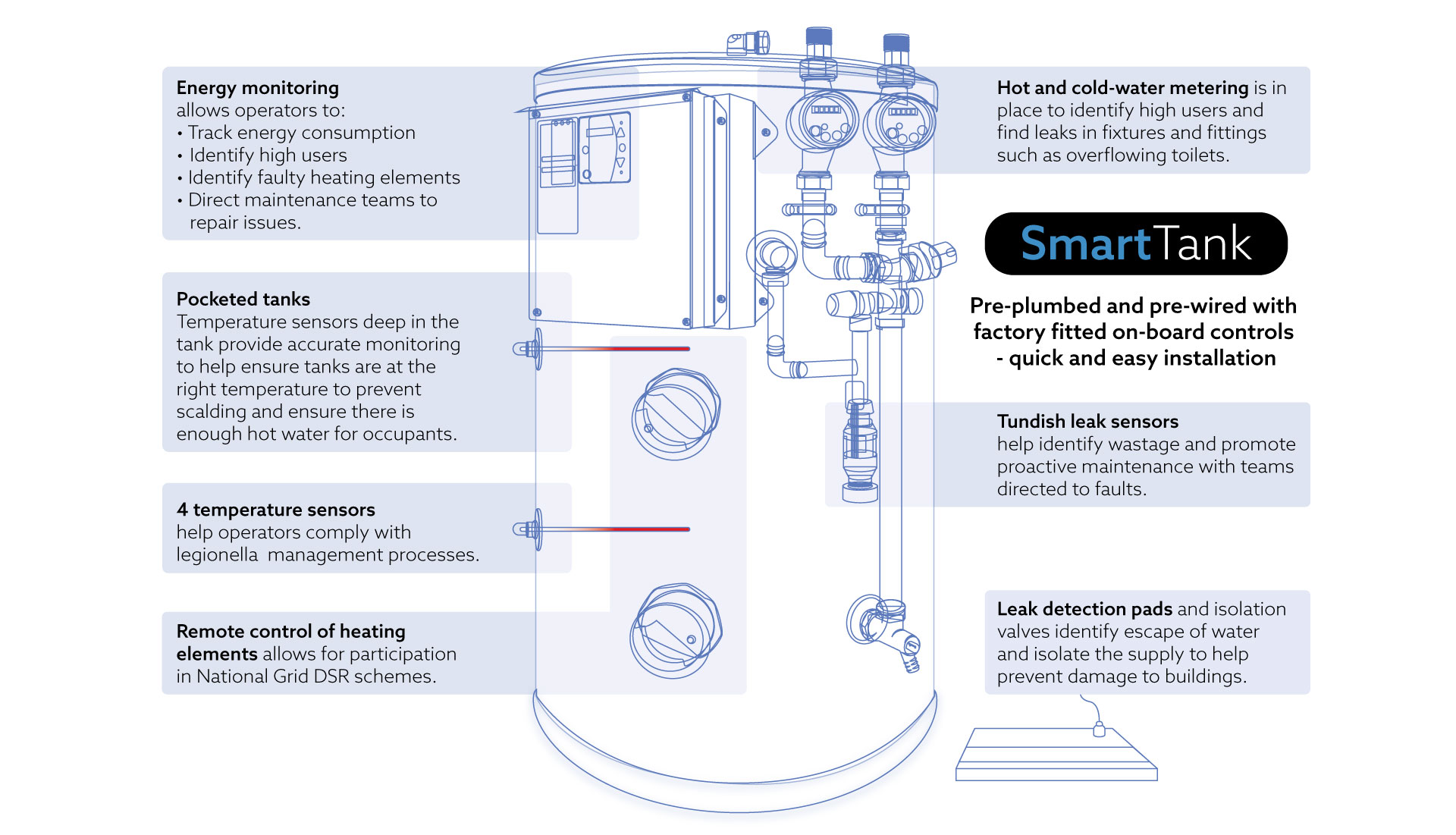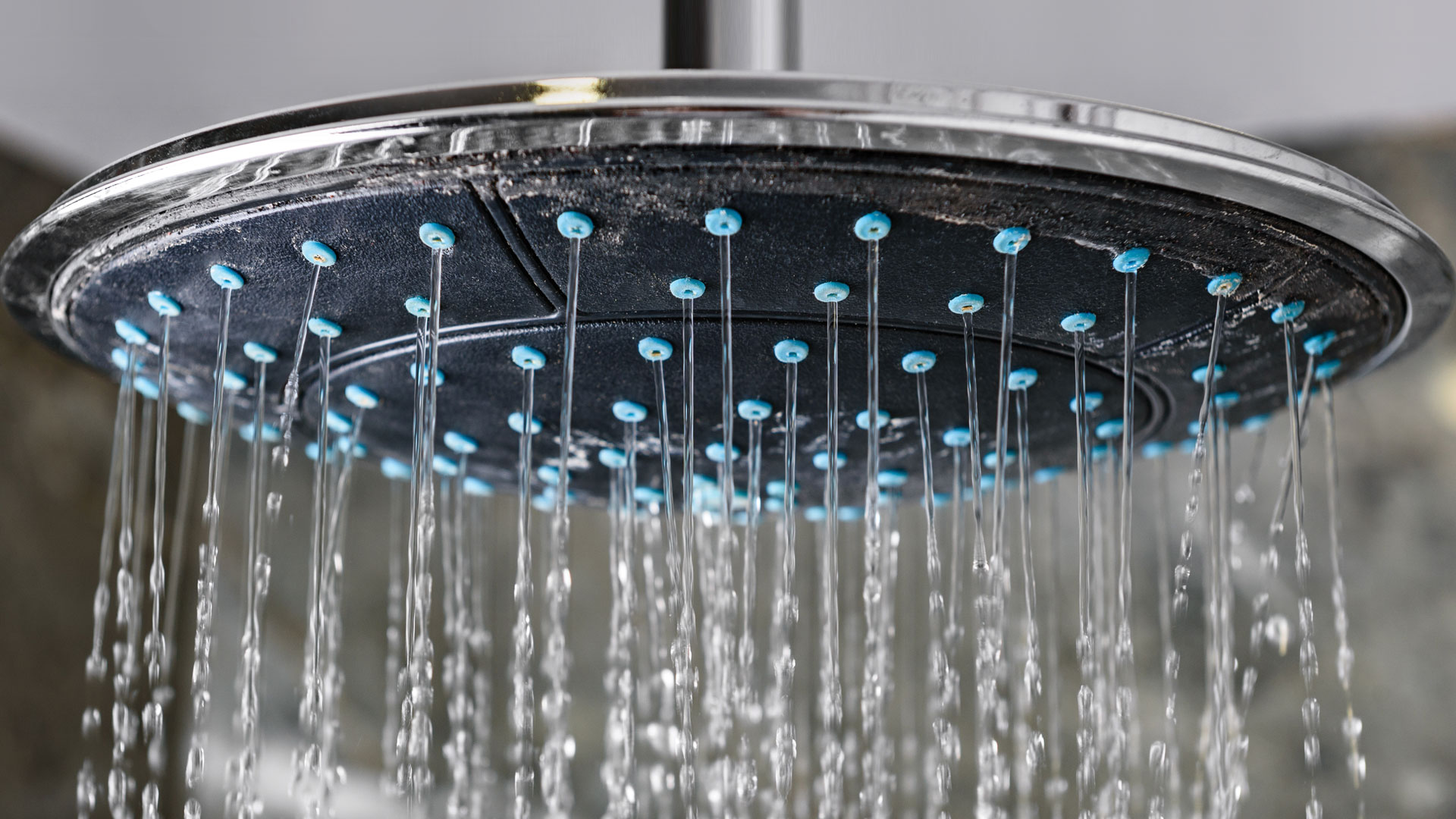Operators of multi-occupancy accommodation, such as student residences, hostels, and shared housing, face ongoing challenges in managing hot water systems effectively.
They face unique usage patterns, fluctuating occupancy levels, and a high demand for both comfort and operational efficiency. At the centre of these challenges lies the hot water cylinder: a seemingly simple piece of equipment that, when poorly managed, can lead to excessive energy consumption, inflated utility bills, system failures, and compliance risks.
Understanding the common issues with traditional hot water systems in these settings, and the benefits that tighter control and monitoring can offer, is key to future-proofing operations and improving sustainability.
Lack of control and visibility
Most traditional hot water cylinders in multi-occupancy buildings use basic thermostatic controls or fixed-time schedules. Often heating water continuously, without real-time understanding of demand or occupancy.
This lack of visibility translates to guesswork. There is little or no data indicating when water is being used, consumption, or cylinders operating efficiently. Without control, buildings often maintain hot water availability around the clock, even during periods of low or no occupancy, such as holiday breaks or weekends.
This “always-on” approach results in wasted energy and unnecessary wear on equipment.
Ageing components
In many student accommodations, water heating systems include older immersion elements and poorly insulated cylinders. These degrade over time, becoming inefficient – consuming more energy to maintain the same output.
Old systems are also prone to temperature drift. The set temperature is not maintained accurately, leading to inconsistent hot water delivery, a common complaint among residents. Additionally, older systems lack modern safety features like automated thermal disinfection, which helps prevent bacteria growth such as Legionella.
Energy and water consumption
Heating water is one of the largest energy costs in multi-occupancy buildings. With outdated or uncontrolled systems, cylinders are heated far more frequently than necessary.
Water waste is another concern, either through leaks, dripping taps or an intermittent faulty toilet cistern.
The benefits of tighter temperature and volume control
Implementing SmartTank as part of the Irus ecosystem offers a solution. Cylinders that enable real-time temperature management and water measurement can transform hot water systems from a passive utility into a proactive asset.

Utilities efficiency – SmartTank enables much tighter control of heating, based on more accurate temperature measurement. Rather than heating all day, cylinders can be preheated before peak times and held at safe standby temperatures during low-demand periods.
Adrian Barber, from Prefect Controls commented, “A recent study of SmartTank data reveals 31% energy saving, per bed over a year. Energy savings are significant due to the tighter control, but the Irus system also detects leaks. At one of the sites a leak that was wasting 14,000 litres of water per day! It hadn’t been spotted for a year. That equates to £13K going down the drain.”
PipeSense is a system addition, monitoring outlet temperatures, and detecting faulty toilet cisterns.
Maintenance and reliability – Monitoring temperature consistency and heating performance helps detect degrading elements before they fail. Preventative maintenance can be scheduled more effectively, reducing downtime and emergency repairs.
Improved sustainability and reporting – Accurate water measurement gives operators clear insights to hot water consumption. Meaningful reporting from the Irus Portal enables targeted conservation efforts, helps meet sustainability targets, and supports transparent utility reporting.
Resident satisfaction – By ensuring reliable hot water supply and reducing downtime, residents’ comfort improves. Additionally, SmartTank prevents overheating or underheating, addressing common complaints around inconsistent temperatures.
The challenges posed by traditional hot water cylinders in multi-occupancy accommodation are real, but they are also solvable. With tighter temperature control and accurate water measurement, operators are dramatically improving utility efficiency, reducing waste, extending equipment life, and enhancing the living experience for residents. In an increasingly data-driven and sustainability-focused world, upgrading hot water systems is not just smart—it’s SmartTank.



